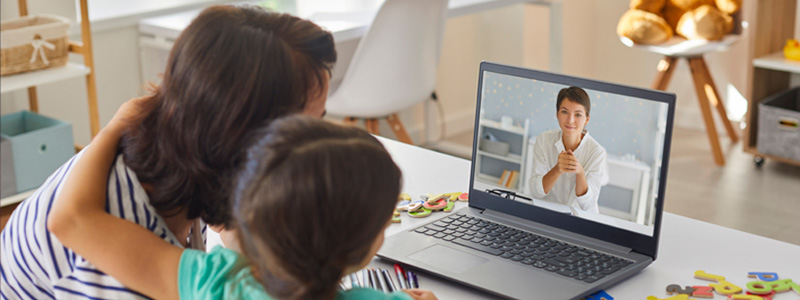6 Tips to Better Care for Your Emotional Health During the Pandemic

Are you feeling stressed and anxious during the pandemic?
Are you struggling with the challenges of working from home?
Are you overwhelmed by the negative news you see every day?
Are you upset because you miss hanging out with your friends?
All of us have been affected, in one way or another, by the COVID-19 pandemic. It is normal to be unhappy and frustrated during these uncertain times, not to mention feeling stressed and anxious about the safety and health of our loved ones.
We should always prioritise our health and well-being — emotionally, physically and mentally. All the more so in light of this challenging period.
Our emotions play an important role in our overall well-being and can have an impact on our physical health, whether positively or negatively. Do you know that you can still have good emotional health even if things are spiralling out of control? Being emotionally strong can benefit you in many ways, especially during the pandemic.
In this article, you will learn more about emotional health and ways on how you can build better emotional health
What is Emotional Health?
Emotional health, though used interchangeably, is not the same as mental health. According to the World Health Organisation (WHO), “Mental health is a state of well-being in which an individual realizes his or her own abilities, can cope with the normal stresses of life, can work productively and is able to make a contribution to his or her community.”
Whereas emotional health refers to the ability to be aware of or understand, manage and express emotions experienced from what you have encountered or learned.
Good emotional health does not equate to being happy all the time. It is about having the skills and resources to take negativities into perspective, cope with the challenges and bounce back from setbacks. People who are strong emotionally are in better control of their thoughts, actions and emotions.
Benefits of Good Emotional Health
With good emotional health, one is able to enjoy:
- A more positive outlook in life
- Better physical health
- Healthier self-esteem and confidence
- Higher resilience in the face of mental and physical challenges, such as stress
- Boosted energy level
- Increased mental clarity and focus
- Improved ability to cope with negative situations, such as the pandemic
- More harmonious relationships with family members and friends
- And more!
Signs of Poor Emotional Health to Look Out for
Warning signs that indicate a person is struggling emotionally could include:
- Isolation from family members and friends
- Too much or too little sleep
- Fatigue or low energy level
- Difficulty eating or Overeating
- Loss of interest in daily activities or activities they used to enjoy
- Decreased productivity at work
- Increased relationship issues and conflicts
- Substance abuse, e.g. overconsumption of alcohol
- Increased thoughts of worthlessness, guilt, helplessness or hopelessness
- Frequent moments of irritability or bursts of anger
- Neglect of personal hygiene
How do we make sure that we can come out of this adversity unscathed? And how can we help each other remain positive and keep our minds and bodies healthy?
Tips to Looking After Your Emotional Health
Our Psychologists share these six useful tips to help you and your loved ones improve and maintain your emotional health and overall well-being during this time:

Tip 1: Acknowledge your emotions and do not blame yourself for feeling upset or anxious
It is all right to feel sad or stressed in this situation. Everyone has been affected by the pandemic and unplanned changes have crept into our lives, disrupting our daily routines, relationships, work, social interactions, etc.
So, if you are experiencing anxiety, stress, depression, frustration, fears or worries, rest be assured that these are not signs of weakness. It is just a normal psychological reaction to adversities. Rather than blaming yourself for having such feelings, you might benefit more from acknowledging and accepting these emotions and focusing on productive activities, such as making plans that can help you adapt to the situation.
Tip 2: Do not isolate yourself emotionally
Although we may be physically apart, whether due to safe distancing or being quarantined, we can still stay connected with others emotionally. Pick up the phone, hop onto your social media platforms or get on Zoom to connect and communicate with family or friends. You can share how your day has been or talk about your feelings and emotions.
Tip 3: Stick to your daily routines
It is important to continue with our daily routines, whether it is our meal or coffee breaks, daily exercises, indoor hobbies, studies, watching TV, etc. Also, plan and carry out your daily activities in an organised manner, and ensure that you are on track with your plan. Accomplishing these tasks can help improve your mood.
Tip 4: Engage in ‘health-behaviours’
We know it is important to keep our bodies and minds healthy at all times. And engaging in "health-behaviours" can help us stay healthy. So, what are "health behaviours"? They are a series of deliberate actions that can promote one's health, such as eating well, doing physical exercises, reducing alcohol consumption and smoking and adherence to prescribed medical treatments.
Staying at home may cause some people to become lazy and not exercise or eat healthily. Our bodies and minds are connected in a way — to enjoy good psychological health, we have to take care of our physical health as well. So, eat well, exercise daily, keep yourself active, and don't forget to take deep breaths and practise mediation and relaxation.
Tip 5: Give yourself ‘me-time’
Since most people are working from home during the pandemic, their ‘Work-Life Balance’ can be out of balance. We prefer to call it ‘Work-Life Integration’. We should strive for the integration of our lives, not only in this current situation but at any given time. We can create synergies across every aspect of our lives, such as work, home and family, community, personal health and well-being.
Integration can differ for different people. When working from home during this season, we recommend that you practice ‘work-life integration’, for example, avoid mixing work time with family/home time.
It is also important to set aside time to boost your well-being. If you have a child doing home-based learning, you may encounter challenges or distractions that can become overwhelming. It is crucial to take care of your well-being before you take care of your family. So, give yourself permission to rest. Likewise, for the rest of the family members, everyone should give themselves permission to enjoy quality me-time.
Tip 6: Don’t be afraid to seek professional help if things get too overwhelming
There is always plenty of support from mental health professionals, such as psychologists, counsellors, social workers, etc. Whenever you need to talk to someone or need help with a psychological issue, do not hesitate to contact these professionals. Technology has also made it easy and convenient to receive timely intervention and support. Online psychological services are easily available and accessible to people all over the world, in different languages.
What are Counselling and Psychotherapy?
Counselling and Psychotherapy are professional, personalised and effective interventions that can help individuals who are experiencing poor emotional health to better understand and cope with their emotions, struggles and challenges.
Counselling and Psychotherapy are similar and their terms are often used interchangeably. However, the main distinction between them lies in that Counselling focuses on the current situation or issues that can be resolved on a conscious level, for example, dealing with emotions, managing conflicts or changes in life events, changing unproductive behaviours, and so on.
Psychotherapy, on the other hand, dives deep into discovering long-held attitudes and beliefs, identifies root causes and underlying issues and reframes or develops personal insights and perspective.
Through counselling and/or psychotherapy, psychologists can help guide individuals in discovering their answers, make age- and needs-appropriate recommendations and support these individuals through the decisions they have made. As a result, these individuals are able to develop greater self-awareness, change their mindset or gain a fresh perspective of their challenges or situation, and start taking steps to make positive changes in their lives, which also include improving their relationships with loved ones and friends.
There is absolutely nothing weak or shameful about seeking counselling and/or psychotherapeutic care and support. In fact, acknowledging that you need help and seeking that timely and appropriate intervention are signs of strength and forms of self-care and self-love – which will ultimately benefit you and your loved ones in more ways than one.
If you have a young child or teenager who needs to consult a counsellor or therapist, here are some ways you can help them be better prepared for these sessions:
For young children
- Familiarise them with the idea and process of counselling and/or therapy.
- Let them know what to expect during the session.
- Introduce your child to their psychologist before the session.
- Assure them that you will be accompanying them to these sessions and that you will be waiting for them outside the counselling room.
- Check with the psychologist how else you can communicate with your child about the counselling and/or therapy session.
For teenagers
- Be open about why you would want them to be counselled. Let them know that you want them to be happier, more productive, enjoy better health and lead a more meaningful life.
- Broach on or discuss this subject calmly and gently and in a non-stressful environment.
- Many teenagers are concerned about being stigmatised by their peers if they seek professional help. Assure them that these sessions will be held in strict confidence and that being counselled is not a sign of weakness.
- Reassure them of your support throughout the entire process.
- Check with the psychologist how else you can communicate with your teenager about the counselling and/or therapy session.
We Can Help You!
If you wish to speak to someone about what you are experiencing during this challenging season or are concerned about your loved one’s health and well-being, come and have a chat with us at Dynamics Psychological Practice. Our team of highly skilled Psychologists is dedicated to helping each individual overcome their challenges and achieve optimal emotional health and overall well-being, especially during these uncertain times.
To cater to unique needs and preferences, we conduct our counselling and psychotherapy sessions in-person, online or both. Make an appointment with our psychologist to find out how we can help you or your loved ones.